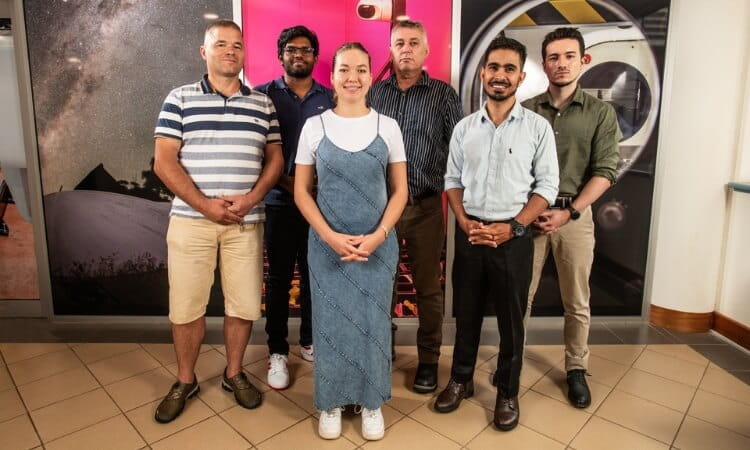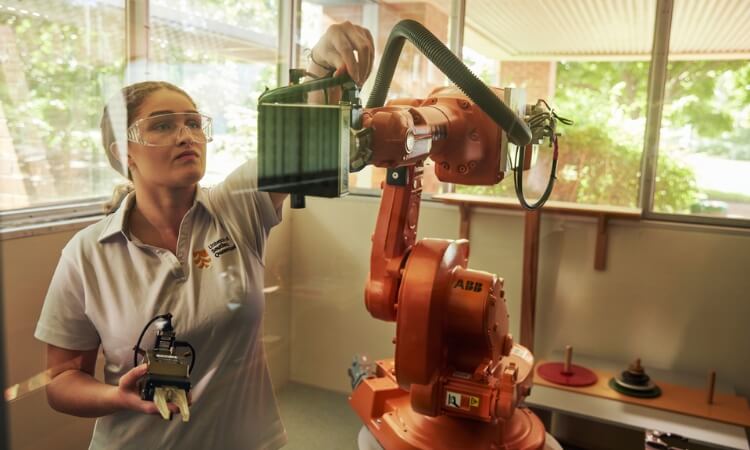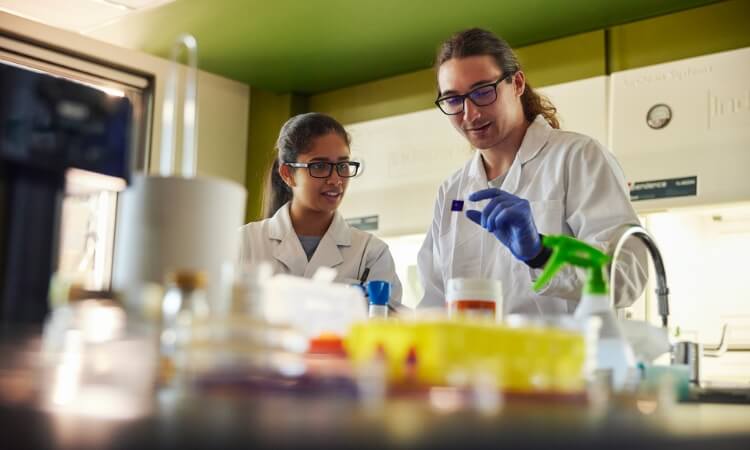Flagship focus on regional Australia
Whether it’s growing the grain or harvesting the cotton, capturing the solar or harnessing the hydro; regional Australia is where the magic happens, and the story of our great nation is crafted.
It’s a story the University of Southern Queensland (UniSQ) is proud to share and continue to support, with the introduction of our new Regional Development research flagship.
The University’s Institute for Resilient Regions Executive Director Professor John McVeigh said the regional development research flagship was focused on empowering regional industries, businesses, and communities now and into the future.
“The Institute for Resilient Regions is quite an exciting research institute; we’re focused on helping regional communities and industries prepare for change, adapt to change, embrace change, all whilst maintaining their own heritage, their own culture, and their own history,” Professor McVeigh said.
“Change is significant – whether it's in the markets, in agriculture, what's happening in energy, or the need for skills or housing - change is ever-present and that's where our research is focused.”
The Regional Development research flagship joins the flagships of Health, Agriculture, and Space and Defence. Together, the four research flagships will ensure the University of Southern Queensland is focusing our excellent research on the issues that matter most to our communities and the world around us.
Making sure the research can be applied to regional communities is crucial for the University’s Regional Economies Centre of Excellence (RECoE) Director Associate Professor Ben Lyons.
“We don’t start any projects without having that impact, or what this could do for that community, in mind,” Associate Professor Lyons said.
“At RECoE, we have the insight and understanding that there’s more to it than just basic economy; we’re looking at regions through the lens of the natural environment, the built environment, people, and economy together,” he said.
“I think that is a much more mature and practical way of looking at economies, and that’s where I really see the excitement in doing research with us.”
The University’s Centre for Heritage and Culture Director Professor Celmara Pocock said the cultural experience of regional life was crucial to understand, and to continue to improve, through research.
“The work of the Centre for Heritage and Culture focuses on our past, present, and futures in terms of that cultural diversity and inclusion, and that helps us to contribute to a lively place where people want to live,” Professor Pocock said.
“That lively workforce we need is based on a sense of belonging and community, which is crucial in regional, rural and remote parts of Australia.”
Professor John McVeigh said he had big goals for the Regional Development research flagship – all of which would take Australia’s regional communities along for the journey.
“Our vision for the Institute and the Regional Development research flagship going forward is to remain at the forefront, and to remain thought leaders, where it comes to assisting regional communities to deal with the challenges and issues they’re facing every day,” he said.
“That’s housing, that’s skills attraction, skills retention, decarbonisation, energy, and agriculture, just to name a few.
“It’s looking at where all those industries are now, and working with the regional communities to discover where they could be in the decades to come.”
Learn more about UniSQ research.
About the Institute for Resilient Regions:
The University of Southern Queensland’s Institute for Resilient Regions conducts multidisciplinary collaborative research with industry, community, and government in a broad range of regional settings. The long-term viability of regional communities is dependent on diversified workforces, flexible economies and behavioural adaptations to sustain healthy populations, and strong cultural and social capital. The Institute draws together research expertise to address complex issues, challenges and opportunities in regional communities.


